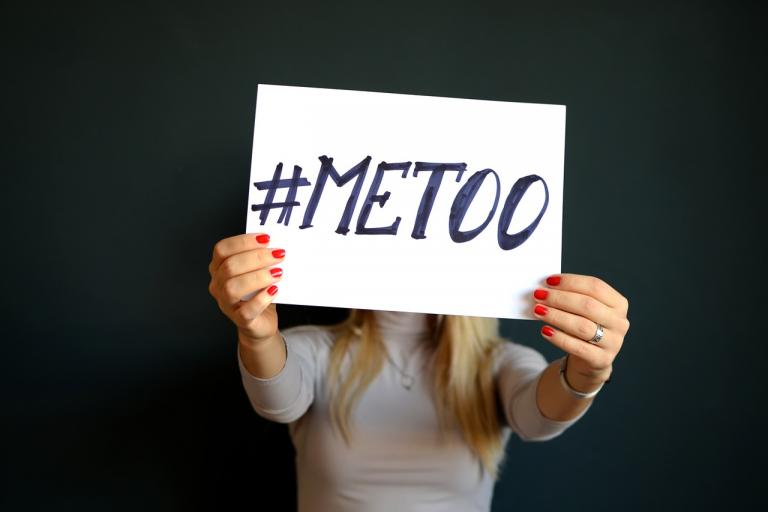We know the statistics. One in five women will be raped in her lifetime.
Around 63 percent of cases go unreported to police. Of those reported, only about 2 to 10 percent are ever revealed as “false reporting.”
Meanwhile, the number of reported cases that lead to an actual arrest, conviction and sentence? Staggeringly low. Some statistics reveal that as few as six rapists out of every 1,000 will ever face prison time.
Of course, these numbers cannot be exact, because so few cases are reported and tried. But one thing is certain: there are far more women who are rape survivors than there are men who face consequences for rape.
We know these numbers. We may even believe these numbers. What we struggle to believe are actual women’s stories. Especially when their accusation involves a powerful or otherwise-presentable white man. Those criminals don’t fit the popular profile of the vague, villainous “other.” Furthermore, we’ve built an entire culture and system of government around the unassailable authority of the white man. So when a woman comes forward with an account of what happened to her own body, her own testimony of abuse or assault, the default response is still: what if she’s lying? The statistics don’t matter, in real time. We might believe, in broad strokes, that one in five women has been assaulted, but we struggle to believe that so many men are capable of assault.
So it’s sickening—but not at all surprising—that Dr. Christine Blasey Ford’s account of attempted assault by Supreme Court nominee Brett Kavanaugh is met with skepticism, dismissive platitudes and outright hostility. Not just from those who have authority to intercede, but from the public at large.
We believe in nameless, faceless victims: we don’t always believe actual women.
Then again, maybe “belief” isn’t the problem. Maybe we believe and just don’t care. Because misogyny reigns at the heart of all that we know; from religion and government to the economy and the family system as we know it, each of these institutions depend upon the sanctity of the white masculine voice. With all of these systems hanging in the balance, the safety of women’s bodies is often the price we knowingly, willingly pay to protect the Patriarchy.

Yes, even women. Even some women are often reluctant to believe such claims, willing to throw a sister under the bus in the name of order. Because we, too, rely on these systems and structures, we become victims of internalized misogyny. Knowingly or unwittingly, we contribute to our own marginalization, again and again.
So which is it? Do we not believe Dr. Blasey Ford? Or do we not care, because of what’s at stake?
If we believe that our highest court can be infiltrated by a predator, what other horrors would we have to believe? That there could be sexual criminals in the Church?
In the White House?
What other structures would start to crumble if we started believing women? The short answer is: All the structures that need to crumble if we are ever going to make the world a fair and safe place for women.
Yes, Kavanaugh’s confirmation is on hold. For now. It may be a hopeful sign that at least, in some symbolic practice, we are creating space to hear more of this woman’s stories. That doesn’t change the fact that, 1) Trump still supports his nominee, granting not even the slightest margin of doubt that HE is telling the truth, and SHE is lying; and 2) That Dr. Blasey Ford has received enough death threats in the past week to make she and her family have to leave their home.
It also doesn’t change the fact that she will be giving her testimony to an all-male Senate judiciary committee.
Which includes Orrin Hatch, who, in staggering echoes of the Clarence Thomas/Anita Hill episode, has already made remarks about Dr. Blasey Ford perhaps being “mixed up.” He’s already suggested they must consider “the man Kavanaugh is now, and not who he was as a teenager.” (By the way: If you’ve ever expressed the sentiment that no man should be held accountable for his sexual behavior when he was underage, then prepare to tell your teenage daughter that her male acquaintances can do whatever they want to her, and she should not expect otherwise. It’s the same damn thing.)
In Hatch’s mind, and presumably, in the mind of any all-male governing body, the PhD who teaches graduate level psychology students must surely be the “mixed up” one here.
And yet, Dr. Blasey Ford is willing to put herself through this miserable scrutiny for the small possibility of justice. Not that he will even face tangible consequences, as such. She’s just trying to keep him from a lifetime appointment on a bench that can change the course of history and democracy for generations to come.
Particularly for women.
And it’s all in the hands of 11 men. Average age of 62. All white.
Statistically speaking—purely statistics, of course—how many of those men have performed an act of sexual violence? How many of them would the numbers indicate might be predators themselves?
No wonder women don’t tell. When the men are literally judge and jury, and even some other women won’t hear and don’t want to believe …
So which is it? Is it that we don’t believe women? Or do we believe and just not care, because civilization itself seems to be at stake? I’m starting to think it’s the latter. When patriarchy must be sustained at all costs, women’s bodies are just collateral damage.
After countless centuries of “she must be lying” or else “she simply doesn’t matter,” maybe the only course is to adopt an unwavering faith in women’s stories for awhile. Not that we immediately lock up the accused without trial, but that we begin from a place of belief, and place the burden of proof on the men. Perhaps a minuscule representation of the wrongly accused will face unjust consequences. But maybe such a massive over-correct is the only way to bring some justice to this toxic world order in which women’s truth has counted for nothing, 994 times out of a thousand.
May our sons forgive us for the temporary injustice. And may our grandmothers forgive us for taking this long. Perhaps it’s just the price we have to pay for years of blind faith in patriarchy.
Read more about internalized misogyny in Erin’s book, Resist and Persis: Faith and the Fight for Equality.
#believethewomen












